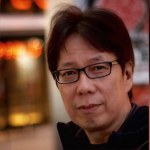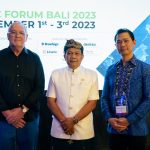OpenAI apparently is taking its generative AI technology to Hollywood, with company executives reportedly lining up meetings this week with film studios, talent agencies and other players.
According to a recent report by Bloomberg, OpenAI wants to show off the capabilities of its AI text-to-video generator that right now can create videos up to 60 seconds long based on a typed prompts and could make quick inroads into a movie industry that has eagerly embraced the latest computer-generated imagery (CGI) and other technologies in its productions.
OpenAI introduced Sora last month, with CEO Sam Altman and others inside and outside of the company showing stunning videos created with the tool, featuring scenes like a street-level tour of a futuristic city and puppies playing in the snow to a kangaroos disco dancing, and wildlife in Borneo on the Kinabatangan River.
The company wrote in the announcement for Sora in February that it is demonstrating what the technology can do in hopes of getting feedback from visual artists, filmmakers, designers and other creative professionals to improve the presentation and make it more useful. OpenAI executives also wanted to “give the public a sense of what AI capabilities are on the horizon.”
In addition, OpenAI is waiting to generally release Sora – Japanese for “sky” – to ensure the security and safety of the tool by enabling red teamers to assess the risks and harms associated with it.
OpenAI is Making the Rounds
An OpenAI spokesperson told Bloomberg that the company “has a deliberate strategy of working in collaboration with industry through a process of iterative deployment – rolling out AI advances in phases – in order to ensure safe implementation and to give people an idea of what’s on the horizon. We look forward to an ongoing dialogue with artists and creatives.”
According to reports, Altman already has begun laying the groundwork for bringing Sora to Hollywood to integrate it into the filmmaking process, including attending parties during the week of the Oscar Awards this month, and OpenAI executives met with talent agencies earlier in March.
In addition, in late February, Brad Lightcap, OpenAI’s chief operating officer, reportedly initiated introductory talks with some Hollywood industry executives, with Lightcap showing off Sora’s capabilities.
Film Industry and CGI
The attraction of Sora to these executives makes sense, given the promise of what the technology will be able to do in the development of movies as it matures and the industry’s decades-long adoption of such technologies. The Nashville Film Institute has tracked the accelerated use of computer animation in films – noting its first use in Alfred Hitchcock’s “Vertigo” in 1958 – through movies from “Westworld” in 1973 and “Star Wars” four years later to “Jurassic Park” in 1993, “Toy Story” in 1995, and “The Lord of the Rings” in 2000.
“CGI plays an integral part in all feature films nowadays,” the organization wrote. “There is simply no pixel that is untouched these days by CGI.”
It noted that “The Avengers” movie in 2012 has more than 2,200 visual effects shots using CGO, while with “Guardians of the Galaxy” two years later, 90% – 2,750 shots – of the movie featured CGI in some capacity.
Sora already is having an impact in the movie-making business. Producer and actor Tyler Perry, after seeing the technology at work, put on hold plans for an $800 million studio expansion in Atlanta, telling The Hollywood Reporter that “being told that it can do all of these things is one thing, but actually seeing the capabilities, it was mind-blowing.”
“I no longer would have to travel to locations,” Perry said. “If I wanted to be in the snow in Colorado, it’s text. If I wanted to write a scene on the moon, it’s text, and this AI can generate it like nothing.”
Long-term Impact of AI in Hollywood
He added that it could greatly reduce the cost of making movies, but echoed the growing concerns in the industry over the possibility of jobs lost to AI. That was a central issue in months-long strikes last year by both writers and actors.
“In both strikes, union members feared that studios would effectively utilize generative AI to perform tasks that ordinarily would be performed by paid writers and actors,” the nonprofit Center for Democracy and Technology wrote in January.
Generative AI also has been a point of contention among writers and others, whose work is used to train large-language models (LLMs) that are foundational to popular chatbots like OpenAI’s ChatGPT and Google’s Gemini. Authors like John Grisham and George R.R. Martin have sued OpenAI for allowing their copyrighted works to be used without authorization for training, saying the practice amounted to theft of their works.
MARKETING Magazine is not responsible for the content of external sites.









